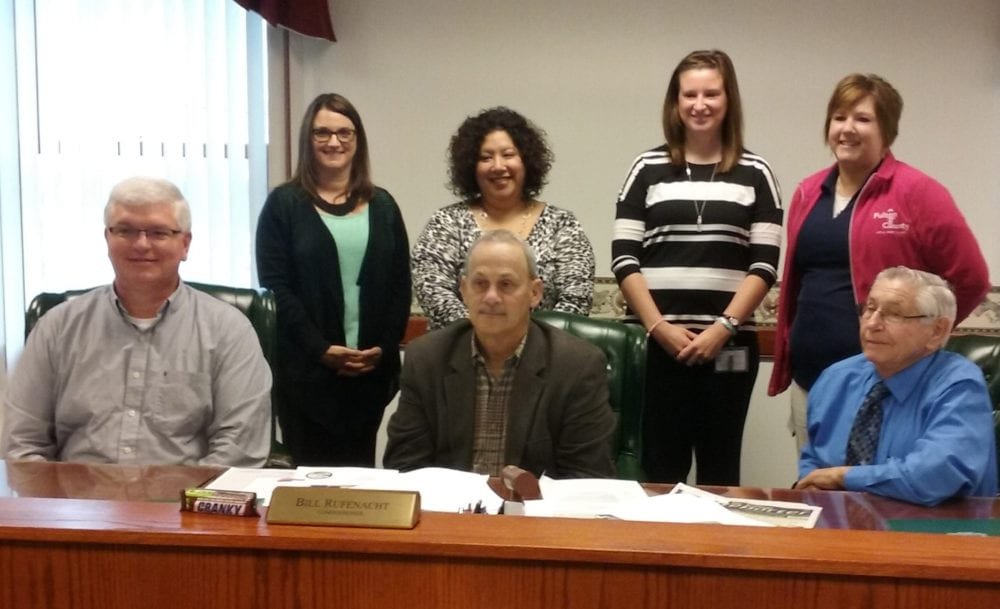 By: James Pruitt
By: James Pruitt
THE VILLAGE REPORTER
Fulton County is fourth in the state in collections from fraud and the department in charge is actively pursuing more cases.
The Department of Jobs and Family Services is promoting fraud awareness in May to alert the public about the issue. The agency handles the requests for cash assistance, food stamps and Medicaid and has several employees devoted to tracking down fraud cases.
Fraud can be either through intentional or accidental misinformation, but it is important for the county enforce the rules regarding assistance, JFS Direct Amy Metz-Simon said. In 2015, her office handled 77 claims totaling nearly $114,000, she said.
“That was number four in the state,” Metz-Simon said. “That’s incredible for a small to medium size county in the state.”
The office has one fraud investigator and two backups.
“She makes sure that policies are followed to a T,” Metz-Simon said.
The process begins with specialists who notice something on an application seems to be not right and those are forwarded to the fraud department and Marsha Horner.
Tracking fraud is a new element in regard to Medicaid, Metz-Simon said. The department is now playing a catchup game on that, she said.
“We are able to enter the fraud claim into the system now,” Metz-Simon said.
The department gets paid incentives to catch fraudulent claims and last year received more than $21,000. The money goes into a general fund that can used for anything.
Fraud can mean someone intentionally lying on an application, Horner said. The county gets 35 percent of money collected, she said.
Mistakes made unintentionally by claimants net the county 20 percent, Horner said.
“If our workers an error, we don’t get any of that back, but we do pursue our clients to pay that money back to the agency,” Horner said.
Last year the top claim for food stamps was $17,000, Horner said. For Medicaid it was $8,100. The top cash assistance claim was $7,900.
The average claim is $1,480.
The food stamp claim erred on the applicant not accurately reporting income and all the family members living in the house. The department is working with the prosecutor on the matter.
“They will pretty much take anything I take to them,” Horner said.
The claimant will go on probation until the claim is paid off, Horner said.
So far in 2016, her office has established 28 claims with 15 more being investigated. The top claim is $4,200.
While it’s nice to have the courts available, once a case enters the court system she can’t intercept a person’s tax return to get the owed money. If the county handles it and the claimant is not paying, then she can intercept the returns, she said.
“That is honestly how we get a lot of our money back,” Horner said. “Normally in February and March we’ve collected a majority of our money. This year we’ve collected $13,000 and I think $6,000 of that was in February alone.
“They get nice little letters in the mail.”
The county gets a $2,000 incentive for participating in Fraud Awareness Month and the department has put up a billboard on Hwy. 20A around Delta, Horner said.
The downside to all this is Medicaid has no penalty for people who have been overpaid and are not paying it back, Horner said. While a person could lose eligibility for food stamps, children living in the house may still be eligible, she said.
Despite these obstructions, Horner still pursues fraud cases. She has relationships established with Chief grocery stores and Walmart to view security tapes of people suspected of selling their food stamp card.
James Pruitt may be reached at
publisher@thevillagereporter.com
